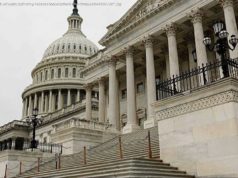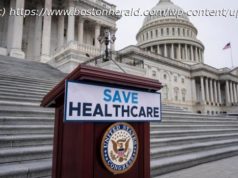Your price depends on how much can be extracted from you on an individual basis.
Perhaps Mr. Putin might consider releasing the total cost projections for this coming weeks’ proposed Obamacare repeal and replace legislation – we’ re not going to get it from anyone associated with our government.
The Congressional Budget Office (CBO) , 535 current members of Congress on both sides of the aisle and the executive branch conceal total U. S. healthcare cost projections more securely than top secret classified information. Top secret stuff leaks out.
The prices charged by hospitals, big pharma, physicians and labs have been rising for decades at a rate far in excess of the cost of everything else. Throughout these decades and today, politicians only speak about insurance premiums – but insurance, including single payer, is just a means to pay the medical bills.
The CBO calculates the effect on total health costs of each health reform proposal, right? Wrong!
The purpose of the CBO is to “analyze the likely effects of proposed legislation on the federal budget.” What did we learn from the CBO’s most recent analysis of proposed health reform legislation? Same as always, absolutely nothing regarding the potential impact on total U. S. health costs.
Health reform discussions are pointless when there is no official calculation of the impact of any change on total U. S. health costs. Proposals touted to reduce premiums fail to quantify the average amount of deductibles and non-covered care to be paid out of pocket by our families. This is unconscionable; like a used car salesman giving you a discount without mentioning there is no engine under the hood.
The last four presidents (Clinton, Bush, Obama, Trump – two Democrats and two Republicans) came into office promising reform. The first three oversaw an explosion in total healthcare costs from 13% of GDP when Clinton was sworn in to 18% of GDP by the time Trump took office.
The latest official government projection by the Centers for Medicare & Medicaid Services is that total U. S. health expenditures will zoom from 18% to 20% of GDP by the end of Trump’s second term – a bigger jump than the Obama years.
I gave politicians the benefit of the doubt thinking perhaps nobody in government understands healthcare. But it has become obvious that healthcare discussions are gobbledegook because the industry which spends more on lobbying than the defense, aerospace and oil and gas industries combined has imposed a gag on intelligible discussion.
Hospitals, big pharma, labs and physicians are merchants who have wired a well-oiled political machine to eliminate price competition and keep their revenues rising. Higher medical costs bumps up premiums and insurer profits as well.
Ask any hospital, lab or physician the price of anything and all you ever get back is a question: “What insurance do you have?” A simple blood test for cholesterol can range from $10 to $400 or more at the same lab. Hospitalization for chest pain can result in a bill from the same hospital for the same services ranging anywhere from $3,000 to $25,000 or more. Your price depends on how much can be extracted from you on an individual basis, often at your most vulnerable. If you are out-of-network or uninsured you pay the highest prices.
In any other industry, imposing a different predatory price on each consumer for the same service would be considered fraud. (Network discounts are just a rationalization by industry apologists.)
The official U. S. projection by the Centers for Medicare & Medicaid Services confirms that total national health costs will continue to be driven by skyrocketing pricing for medical services:
Incredibly, the pricing of medical services, which is the whole ball game, is politically untouchable. Providers should be required to play by the same rules that apply to all other sellers of consumer goods and services.
The full spectrum of proposals from the right to the left would leave in place a crony capitalist system tailored to maintain rapidly growing, non-competitive hospital, physician, lab and pharmaceutical charges. Ignoring the impact on total costs of reform proposals is not an oversight. It is a strategy to continue a brutal, corrupt system.
Steven Weissman is a former hospital president.






